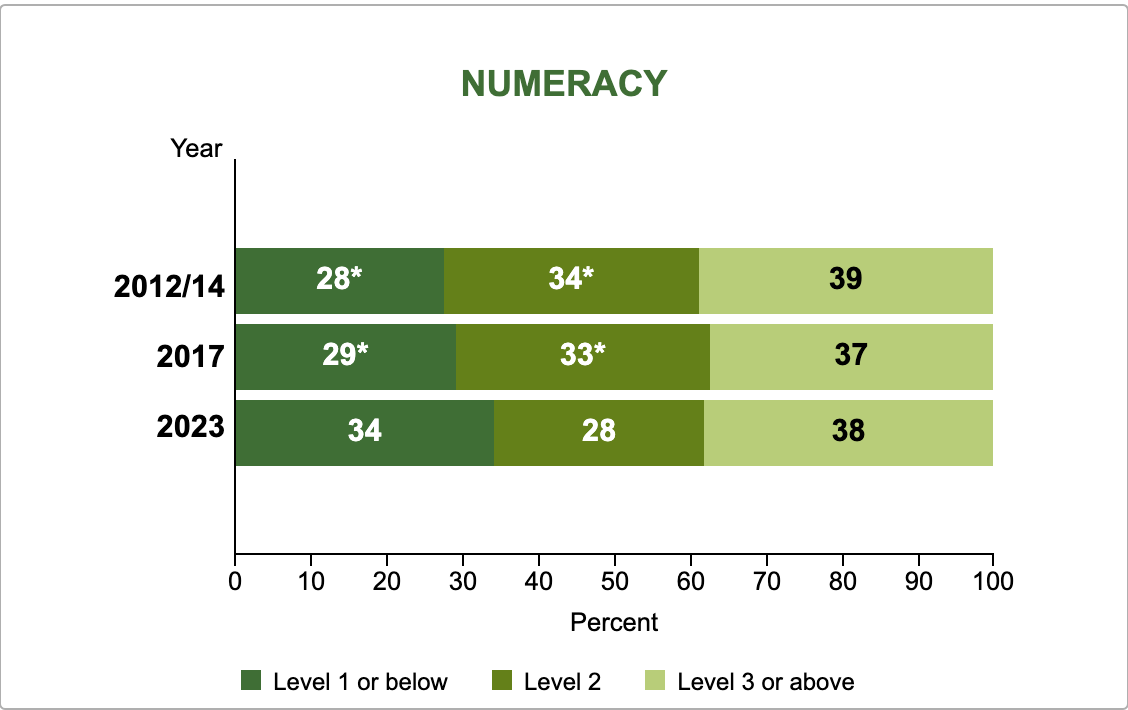Our conversation begins with my personal experience with how people perceive mathematicicans and mathematics:
- "I knew math wasn't for me since elementary school."
- "Wow! You must be really smart!"
- "How can anyone study math and enjoy it?"
- "I'm so sorry (for you)! :("
These point-of-views are interesting because they point to a primary issue with modern day, and even some archaic, mathematics:
the math community's inability to humanize mathematics. We focus so much on accuracy, logic, and results that we forget people
are involved with the process most of the time.
In reality, the Program for International Assesment of Adult Competencies (PIAAC) found 34% of U.S. citizens aged between 16 and 65
have little to no numeracy comprehension. Financial insecurity, familial matters, lack of mental/physical/social support systems, as well as
childhood factors all play into the United States' lack-of-numeracy epidemic. Our goal, as educators, is to mentor American citizens in both life
and mathematics: so they may one day appreciate both.

The most effective way to increase numeracy, and literacy, is to build individual agency and community around education. The U.S. is on the
cusp of an anti-intellectual implosion due to the lack of encouragement from family, friends, and our communities to pursue education. We
demoralize and ostracize those who aren't "smart" and exessively praise those who are "smart:" particularly in the political sphere. We are
in this together!
Here are some original ideas instead of vague "intellectual" word vomit.
-
I encourage you to
volunteer in any capacity. We are always looking for another hand in a
food pantry, adult ed. classroom, community garden, etc. Every little bit helps! You can also try to make a club, community group, or
non-profit organization to directly help your local community.
-
People tend to make subtle comments about their insecurity. Try to listen to these thoughts and encourage your friends, peer,
family member, partner, etc. to remove themselves from their negative self-talk. Most people psyche themselves out into living
their desired life.
-
If you are a mathematician, please be kind to your students. Every person in your classroom is likely going through
something you'll never experience. I had to learn the hard way that arbitrary theory only pisses off an adult learner,
since adult learners are more pragmatic in their education.
